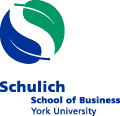
Yonsei University - South Korea
Yonsei University, the oldest university in Korea, celebrated its 100th anniversary in 1985. It has grown from small beginnings to one of the largest universities, with 17 colleges, 83 departments and 14 professional graduate schools.
The Graduate School of International Studies (GSIS) established in 1987 as part of Yonsei University's century-long tradition of internationalization. The GSIS admits both foreign and Korean students, seeking a balanced student body that will promote international ties and create in microcosm the true "global village." Separate from Yonsei's main Graduate School, where courses are taught in the Korean language, the GSIS offers programs taught fully in English.
Location
Located in the middle of the capital city, Yonsei provides students access to all of the major sites and attractions of Seoul. The centers of government, business and culture are all within twenty minutes of the campus.
Seoul is modern, advanced and appealingly ancient. Flattened in the Korean War, most of the city has been rebuilt since the 1950s. Peeking out from among the 12-lane freeways, overshadowed by high-rises, Seoul has a hidden history of century-old temples, palaces, pagodas and pleasure gardens. Common forms of entertainment include attending the opera, circus or a variety of music concerts. The nightlife, restaurants and clubs will be unlike any you've ever seen. It is truly a unique and worthwhile experience.
Approximate Term Dates
Fall Term: Early September to mid December
Winter (Spring) Term: Early March to early June
Credit Equivalency
4 Yonsei courses = 12 SSB credits
5 Yonsei courses = 15 SSB credits
Academic Information
Areas of concentration include: Corporate Finance, Organizational Behaviour, International Business Policy, Marketing, Management, Strategy, Accounting, and Economics.
Size of Classes/Features
30 - 50 students
Language
Language of instruction is English. Korean Language courses at all levels are offered throughout the year. Exchange students are required by Yonsei to register in the Korean language course.
Computer Facilities
The University has several computer centers, which are available for student use. The Graduate School of International Studies (GSIS) has its own computer room, exclusive to GSIS students. The labs are fully equipped with the latest in English and Korean software, and is set up for network Internet access.
Type Availability of Accommodation
Over 16 dormitories are available on campus, either in the North Gate or the East Gate areas of the campus. Throughout the residences, student's rooms are arranged in groups around communal facilities such as a laundry room, lounge, and study rooms and in some locations, dinning facilities and a gym. Both single sex and co-ed dormitories are available. All rooms are similar in size and two students usually share each room. The University also has specialized dormitories, such as the International House for foreign students, where dorm reservations are made on a ‘first-come, first-serve’ basis. In addition, studios and two roomed apartments can be found within a 5 to 10 minutes walk from campus. Dorm rooms are western-style with twin beds. Each student is provided with a wardrobe closet, desk and a small bookcase. Hot plates, irons, toasters, rice cookers, space heaters and other such appliances are not permitted within the dorms. Furthermore, guests are not allowed in dormitories without prior consent and no visitation is allowed between the men’s wing and the women’s wing.
Homestay can also be arranged through the Global Lounge.
Health Insurance
Exchange students are required to submit proof of insurance to the International Division at Yonsei. This includes a letter from student’s insurance company and/or a health insurance card. Yonsei’s International Division does not offer student health coverage. Students are required to buy their own health insurance before coming to Korea. In case of medical emergency, students may go to the Severance Hospital for service. Students will have to pay a full fee up-front and subsequently apply for part reimbursement from their home insurance company. Immunization is not required to travel to Korea from developed nations, however it is recommended for students to obtain immunization against Typhoid, have up to date tetanus and polio immunization and the Hepatitis B vaccine is recommended by some doctors.
Visa
For more information, contact the consulate at:
555 Avenue Road, Toronto, ON, M4V 2J7
416-920-3809, Fax: 416-924-7305 www.consulatekorea-tor.org
Further Research
For more information about this partnership school, see the exchange literature available in the Schulich Exchange Reference Library located in room W263 SSB or visit Yonsei’s Web site at: www.yonsei.ac.kr